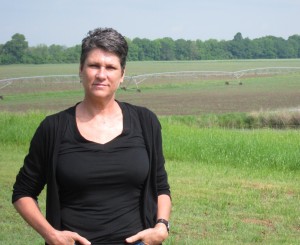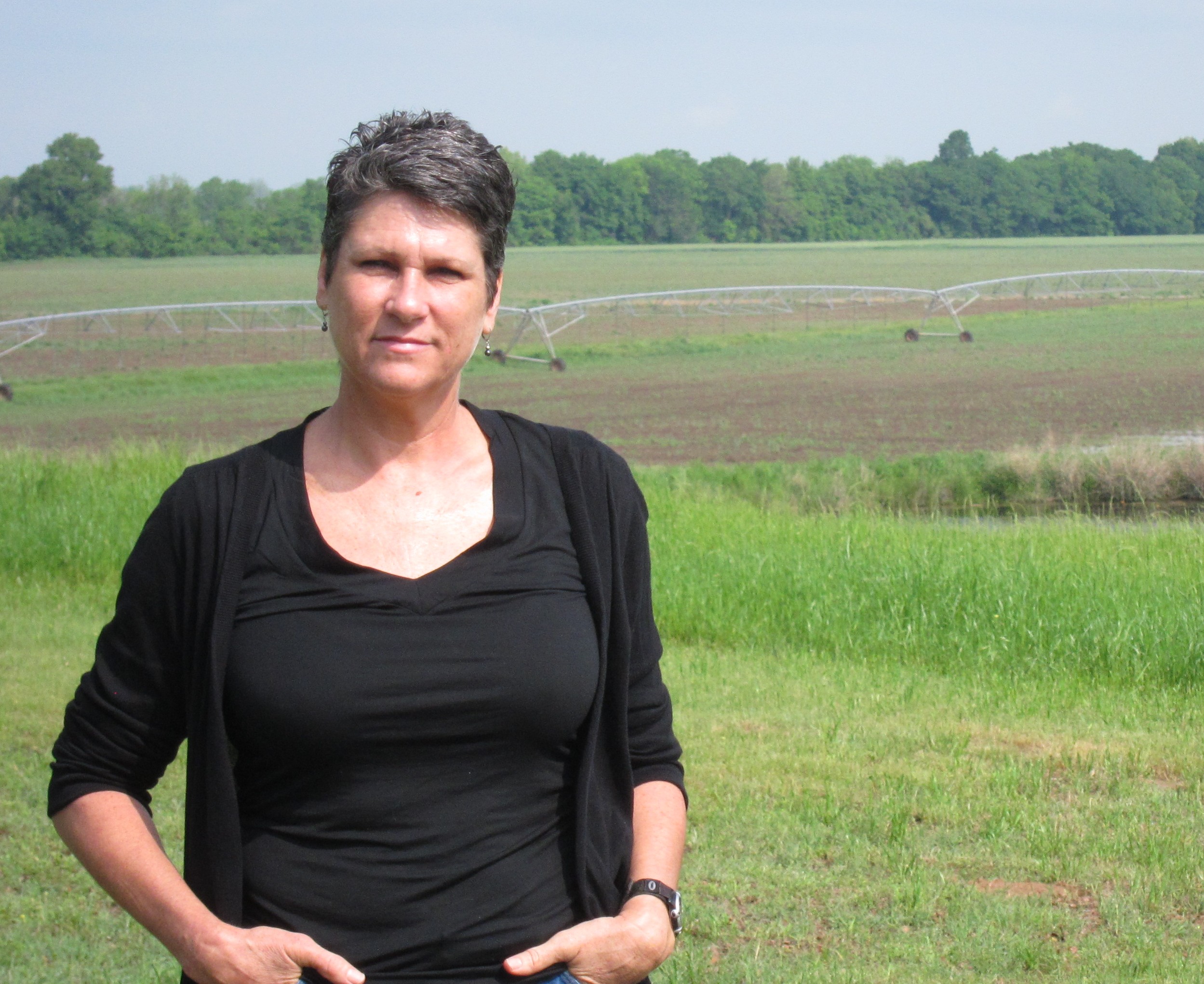As Oil Flows in the Keystone XL Pipeline, Opponents Vow Scrutiny

Photo by Terrence Henry/StateImpact Texas
Julia Trigg Crawford has several hundred acres of land in northeast Texas. She lost her recent challenge to the Keystone XL pipeline.
Update: TransCanada has emailed a response to this report. You can read about that here.
The Keystone XL Pipeline runs under Julia Trigg Crawford’s North Texas farm. It’s been carrying crude for over a month. But today business is scheduled to open in earnest on the controversial pipeline, with oil flowing from Cushing, Oklahoma to refineries in Texas. That’s why she’s worried about an “unusual flurry of activity” she noticed over the weekend.
“Track hoes, skids, water trucks, electrical trucks and construction crews showed up,” Crawford tells StateImpact Texas. “They unearthed the pipeline, attached wires and sensors, wrapped it in something and then covered it up.”
She says TransCanada — the company that owns the pipeline — later told her it was installing heat sensors. (Representatives from TransCanada did not respond to an interview request by deadline). But her interest in the activity goes beyond that isolated incident.
Crawford has long battled the pipeline company over its use of eminent domain, where the company has claimed private property to route the pipeline through Texas. Since she and other opponents of the project have failed to stop it, they now plan to keep it under intense scrutiny. The southern leg of the Keystone XL may become the most watched pipeline in the country.
“We’ve got the Texas Pipeline Watch, a website, we’ve got a Facebook page. We are going to be out there with every means of technology and boots on the ground to watch this stuff,” Crawford says. “Because if you follow what happens a lot of times with unfortunate pipeline spills, it’s the landowners that find these things.”
Activists have already called attention to repair work. In November, the watchdog group Public Citizen released a report highlighting incidents of damage and repair work on the Keystone. The group is calling on the state Attorney General (and candidate for Governor) Greg Abbott to delay the pipeline while those issues are looked into.
At peak capacity, the pipeline will deliver 830,000 barrels of oil per day to Gulf Coast refineries. Supporters of the project argue that pipelines are the safest means of transporting oil, and say it will provide a boost to the economy. Opponents have fought it over concerns for the environment and land rights issues among other things.
Now, as the Obama administration continues to consider whether to allow the northern leg of the project, which crosses an international border and is subject to presidential approval, the perception of how the southern pipeline operates may be of even greater importance. Crawford hopes the president is now looking at “data” on the pipeline and saying, “‘Wait a minute, there aren’t as many jobs that are being generated, this is an export pipeline, there are threats to our waterways,'” Crawford says. “You know, we need to see what significant impacts to our environment it has.”
On the other side, a glitch-free roll out of pipeline service could provide TransCanada with a public perception boost, as it continues to argue for approval of the northern leg of the project.



